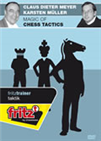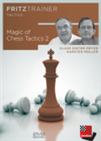Timeless
Only a page-turn-away and I was there, in my wonderland, experiencing adventures and insights which I treasure up to this day. Until that fateful moment when my parents opened...an atlas, a book with so many pages to be read and travelled! This was when I started to devour the maps, to spin the small globe I'd been given. On rainy days I used to explore other faraway cities bearing magnificent names: Dar es Salaam, Ulaanbaatar or Kathmandu. Later I became a chess player. Still later I visited some of the places I had dreamed of as a child.

In the heart of Nepal — Boudhanath, one of the largest Buddhist stupas in the world
Stepping off the plane into Kathmandu was a pupil-dilating affair, a riot of sights, sounds and smells which quickly led to sensory overload. Incredible place but exhausting too. My guidebook insisted that the very first sighting of the legendary temples would take my breath away, but the dust, noise and temperature had done that already. All I could feel was tiredness, thirst and a tinge of white walls between advertising. This was not what I expected, Shangri-la is more than Adidas, Nike and Coca-Cola!

Time to freak out?
Somehow, in that mayhem (sorry for not picturing it but more important was to survive crossing a street, any street!) I fell for Nepal.
Alice: "How long is forever?"
White Rabbit: "Sometimes, just one second."

Life is not perfect but it has perfect moments,
like this one shared with IA Dharmendra and GM Kostya
That's what I loved instantly about Kathmandu. The way it reminded me what I value about chess and travel, which isn't just points, dumb parties and beautiful beaches.

(Chess) Life is tough, challenging and rewarding

Nepal reminded me who I was and what I wanted
For starters, I wished for a good place in the 1st Kathmandu International Open. On their side, the organizers did their utmost to make that happen.

Excellent playing conditions and even advice, free of charge
Stranger things
Just when I was about to say that's it, I found my heaven in my super classy room, darkness besieged me. One hour later, I was still regretting not having charged my devices properly.
Nepal has a long way to go when it comes to wiring and electrics. I don't want to be offensive here, it is a fact.

You will surely experience a power outage (or eleven) while exploring this otherwise incredible country
NOTE: Sometimes Nepal's WiFi connectivity was better than the one I have at home; besides, I've always used the classic pen and paper to write down my chess moves but in Kathmandu's Open you could do that digitally — check the collage above.
The first 'serious' power outage occurred when we were fighting the ever-vicious time troubles. Seconds later, it started up again. When suddenly — power cut out. Again. During those daily procedures, the Nepalis didn’t raise an eyebrow.
I admire that about the locals. Nothing seems to bother them, not even the power cutting out while they're playing chess or watching Netflix.
Wish I could blame electricity for what happened in my game against (what a coincidence!) a Nepali:
How would you take back on g6? Around here I think the lights went off. Later on, I responded:
29...Bxg6?? trying to avoid at all costs a draw after 29...hxg6 30.Ne6 Bxe6 31.Qxg6+ with perpetual. I was playing against someone rated 300 points lower but that doesn't justify the suicidal decision.
30.Ne6 Qe7 (30...Ne2+ is only a temporary check 31.Kh2+-)
31.Nxf8 Qxf8 32.Qxf8+ Kxf8 33.Ra1 Bxd3 34.Rxa5 and the rest is no longer interesting 1-0 — some electrical brain disturbances happened here, I guess.
If they burn a candle, it means not only giving us light. It represents faith and hope. It means they welcome us in the warmth of their homes.

As a profound symbol of illumination, the candle was lit in the playing hall for what it also became: a great tournament

Restoring harmony with rituals

A Nepali outlook, pace and (tea) philosophy can prevent you being swamped by your problems. It feels somewhat 'easier' to take life day by day in Nepal.
Today is yesterday's tomorrow
Living in the moment is great but it has quite a few flaws too. After having soaked up the sun, life and culture, I donated 20 rating points, all lost in the morning rounds. Every single point I gained with hard work in Jersey, UK, vanished in the thin air of Kathmandu.
And it turned out I was not the only one to suffer on the chess board. The top seed, the experienced Russian GM Sergey Volkov, failed to win against an opponent more than 600 points lower rated and even endured a defeat against a 2200. That is not only painful but also a clear-cut example of how-you-should-not-play-in-India/Nepal-if-you-care-about-your-Elo.

The real strength of the players on this side of the globe is legendary, let alone the evil schedule of nine rounds in five days, plus 9 am morning chess pleasures
Three examples to demonstrate how things could go wrong even if the rating gap is pretty serious:
 Chess Tactics are the art of combat command. When tactics dominate concrete action is required immediately in order to put a plan into practice or to grab an opportunity. However in complicated positions and with determined resistance basic tactics are often insufficient and intuition, imagination and precision are necessary.
Chess Tactics are the art of combat command. When tactics dominate concrete action is required immediately in order to put a plan into practice or to grab an opportunity. However in complicated positions and with determined resistance basic tactics are often insufficient and intuition, imagination and precision are necessary.A similar fate but maybe less distressing was experienced by the second seed, Sandipan Chanda. The Indian GM didn't lose any of his games but the last three round's draws against his lower rated compatriots didn't propel him onto the podium either. For the third seed, the GM Deep Sengupta, everything seemed working according to plan until he met his young IM colleague, Harsha Bharathakoti. This loss was surely deeply regretted by Deep but not by the well-deserved tournament winner.

Clear first with an undefeated 7½/9!
It should be mentioned that Harsha gave a glimpse of his talent in the 2017 Isle of Man edition, where he made a GM norm with one round to spare. Now we are vaccinated, we're no longer surprised by his unshared tournament win and we expect much more in the near future.
Three highly dynamic examples for your eye to revel in:
 FM Claus Dieter Meyer has put under the microscope a comprehensive fund of topical and timeless games / fragments. On video Hamburg GM Dr. Karsten Müller has outlined corner points of Meyer's work and created 14 tests plus 10 interactive test sets.
FM Claus Dieter Meyer has put under the microscope a comprehensive fund of topical and timeless games / fragments. On video Hamburg GM Dr. Karsten Müller has outlined corner points of Meyer's work and created 14 tests plus 10 interactive test sets.
The winners, sponsors and organizers. Oh boy...where do I start, without offending anyone?!
(The overall winner is missing though, as he had to catch his flight)
An attempt to organize this chaos — thanks to the Homeland Sports Club (President: Prakash Adhikari, and Secretary: Sanjeev Pudasaini) & Nepal Chess Association (Tournament Director: Bidur Prasad Gautam and IA + looking after us, the foreigners, Umesh KC), a beautiful first edition has been successfully completed. And the main sponsor, KNP Japan, promises us at least two more to come!
Traveller's Disneyland
I may be on the podium but that doesn't mean I deserve being there judging by my tournament rating chart.
However, it is not all lemons and sour grapes and mountains you'll fail to climb. Some players adapted instantly to the local customs and spirit. The Azeri GM with a predestined name, Azer Mirzoev, found his peace once he managed to squeeze in a quick spiritual stroll around centuries-old stupas and finished on a second place with an undefeated 7/9.

This is part of what Azer contemplated atop a hill in the Kathmandu Valley: the Buddhist temple Swayambhunath

Since that for me is rather difficult to pronounce, I rely on its 2nd name: the Monkey Temple
A shared 2nd position but with an inferior tiebreak was claimed by the unique GM, the Ukrainian Konstantin Tarlev, whose headquarters were around...the swimming pool. Either he was testing the water or practising yoga.

Kostya didn't fail to blend in
Weirdly enough, Konstantin's approach to life was completely different before playing in Kathmandu. The "choleric" as he described himself, suffered a major transformation in the mythical aura of Nepal — a bit of yoga, five hours of sleep, big smile and lots of sunrises, that's all it takes to be happy.

Learning from the Masters
It is not things but moments that make this life worth living
Back to the future
3 am, 14th April 2075 (!?) — Kathmandu, Nepal
As for your author, just when I was about to roam around my world of dreams and find Shambhala, I was brought back to reality. Abruptly.
Continued in part 2...
























